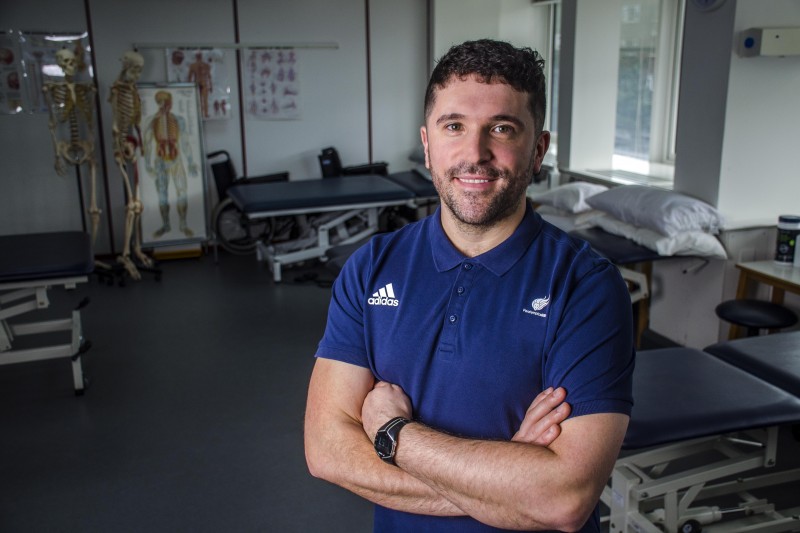From working at Poole Hospital to supporting GB Paralympic teams in Beijing, it’s safe to say that Dr Osman Ahmed’s experience as a physiotherapist is extensive.
And, after undertaking a PhD in New Zealand, he joined BU to share that wealth of knowledge and experience with students as a Lecturer in Physiotherapy.
As the NHS turns 70, Osman is keen to stress the importance of working within the service.
“I can’t get across to my students more strongly the importance that, upon graduating, they work within the NHS setting for at least a few years,” said Osman.
“Even if you know that you’d like to go into sports, paediatrics, or another specialist area, having that core knowledge and exposure to patients by working in the NHS, is absolutely crucial.
“By and large, most of our graduates do work in and stay with the NHS for large portions of their careers before specialising, so the NHS is fundamental to everything we do.”
As well as experience working as a physiotherapist within the NHS, Osman has supported several high level football teams.
He travelled with several disability football squads to European and World Championships and is currently working with the England Cerebral Palsy football squad on a part-time basis.
BU’s partnership with AFC Bournemouth also means that his students have the opportunity to work with, and learn from, the Premier League club’s physiotherapists.
“It’s been nice to forge links with our local football club, AFC Bournemouth and we have different things we’ve done with the students,” Osman said.
“We’ve been really excited to have been invited to the club for our students to see how club physiotherapists work, and we’re excited to have more speakers from the club speak at BU.”
He’s also keen to stress that students need an academic grounding to underpin their work, as well as the opportunity to experience a range of settings to enhance their knowledge.
“There are trials for lots of conditions with evidence to show the best range of treatments that do and don’t work for particular conditions, so having an academic underpinning is very important,” he explains.
“We encourage our students to volunteer at a lot of places, be it a care home, a school or volunteering elsewhere. We do this so they are exposed to a range of cases in a relaxed environment which enhances their knowledge and gives back to the community.
“Physiotherapy is a caring profession, you have to have that quality and that’s one of the things we look for throughout the admissions process – we are looking to identify people with that element to them.”
For more information about physiotherapy at Bournemouth University, visit the course pages of the BU website.
